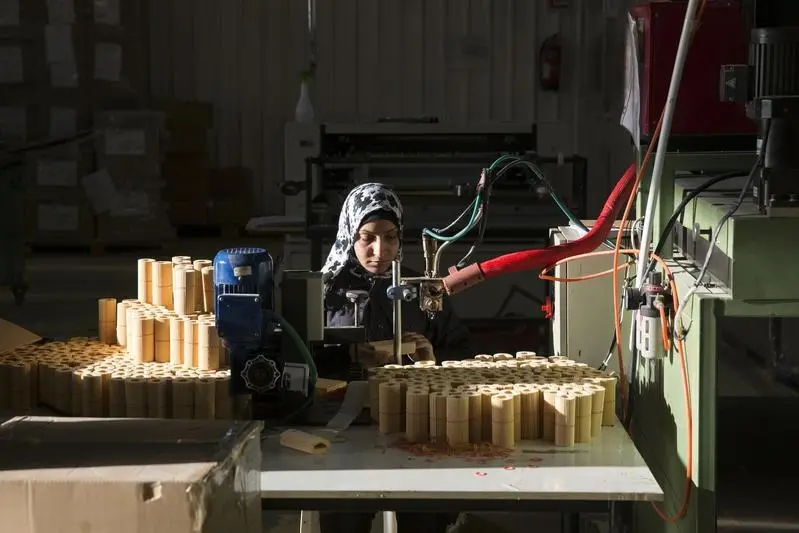PHOTO
AMMAN — The Jordan Enterprise Development Corporation (JEDCO) on Thursday released a study on domestic and foreign labour in the economic activities and establishments, recommending “the creation of programmes to achieve job security in small- and medium-sized enterprises (SMEs) within the private sector in a manner equivalent to the working conditions available in the public sector”.
“The development of such programmes is an excellent goal due to several reasons,” Director of the Jordan Labour Watch Ahmad Awad told The Jordan Times, stressing “the need to implement and respect the Jordanian and international labour standards in the workplace”.
“In addition, this would also reduce the high demand for employment in the public sector, which is currently overcrowded due to the general better conditions,” Awad continued.
For his part, economist Khalid Zubeidi told The Jordan Times that “the private sector is currently experiencing several difficulties”, noting that “the slowdown in the economy is creating a bad environment for small companies to keep on providing opportunities”.
Prepared through the Small and Middle Enterprise (SME) Observatory, the study was aimed at “providing policy and decision makers with the information needed to reach the required balance in the Jordanian labour market”, according to a press release by JEDCO.
In this regard, the report recommended the development of an information system measuring local and expatriate labour in micro, small and medium enterprises in order to provide “an accurate, detailed picture of the labour demand and supply curve”, adding that “it will also identify the expertise and skills required by the establishments and the number of job seekers by governorate”.
“The movements from one economic activity to another require the preparation of studies examining the turnover in the workforce and the reasons behind it — especially considering that a high turnover rate is a sign of technical and administrative instability,” the study continued.
In addition, the study recommended the establishment of a mechanism to facilitate the movement between governorates, stressing that Amman governorate holds a 38.9 per cent of the total workforce in the Kingdom followed by Irbid (18.7 per cent) and Zarqa (13 per cent).
In this regard, Zubeidi noted that “the job market cannot prosper without an increase in projects based outside Amman”, adding that “it is vital to create more opportunities for people to work in their hometowns, stopping the massive move to the capital”.
With regard to the expatriate labour figures, the report highlighted that foreign workers account for a 39 per cent of the total workforce in Jordan, noting that most of the expatriate employees are concentrated in manufacturing activities, wholesale and retail trade, vehicle repair, accommodation and food services and construction.
Copyright The Jordan Times. All rights reserved. Provided by SyndiGate Media Inc. (Syndigate.info).





















